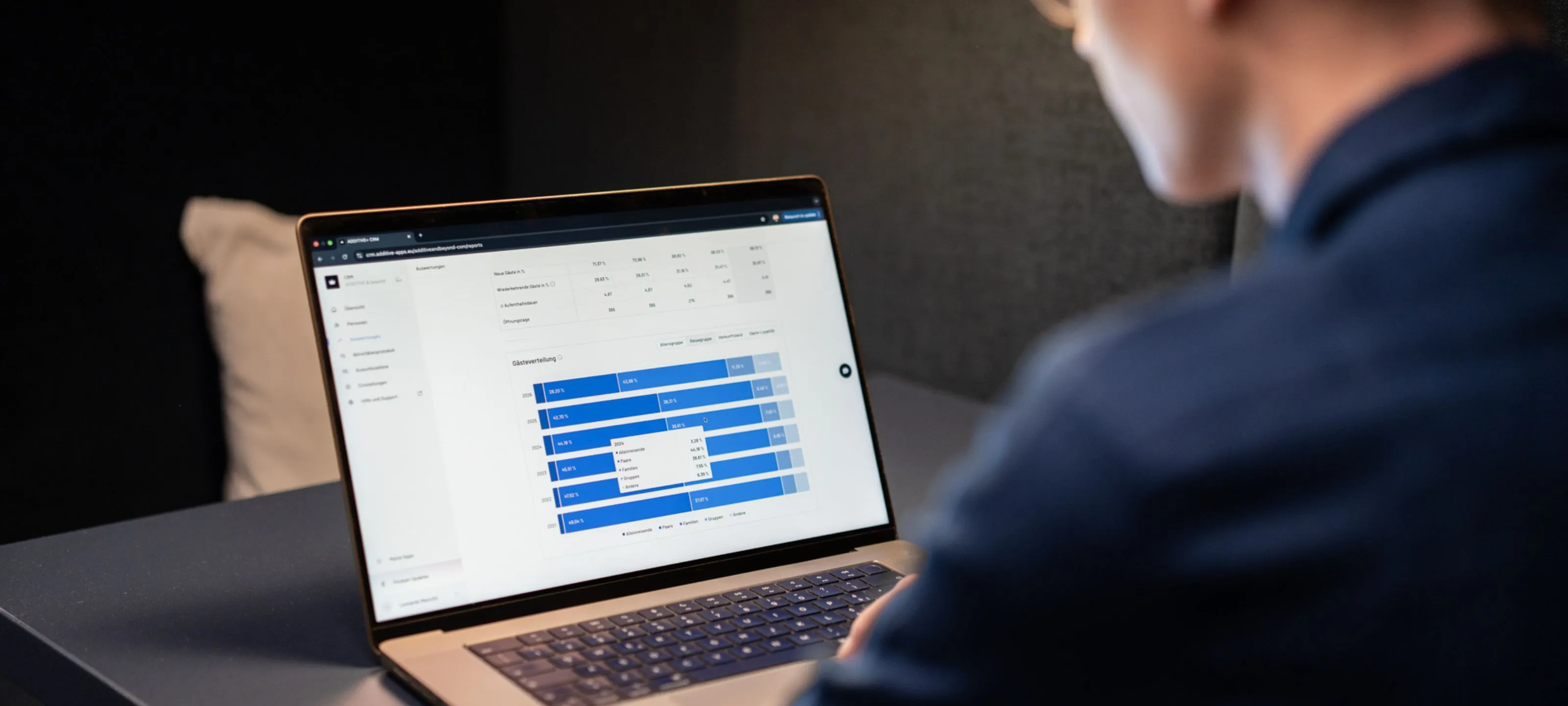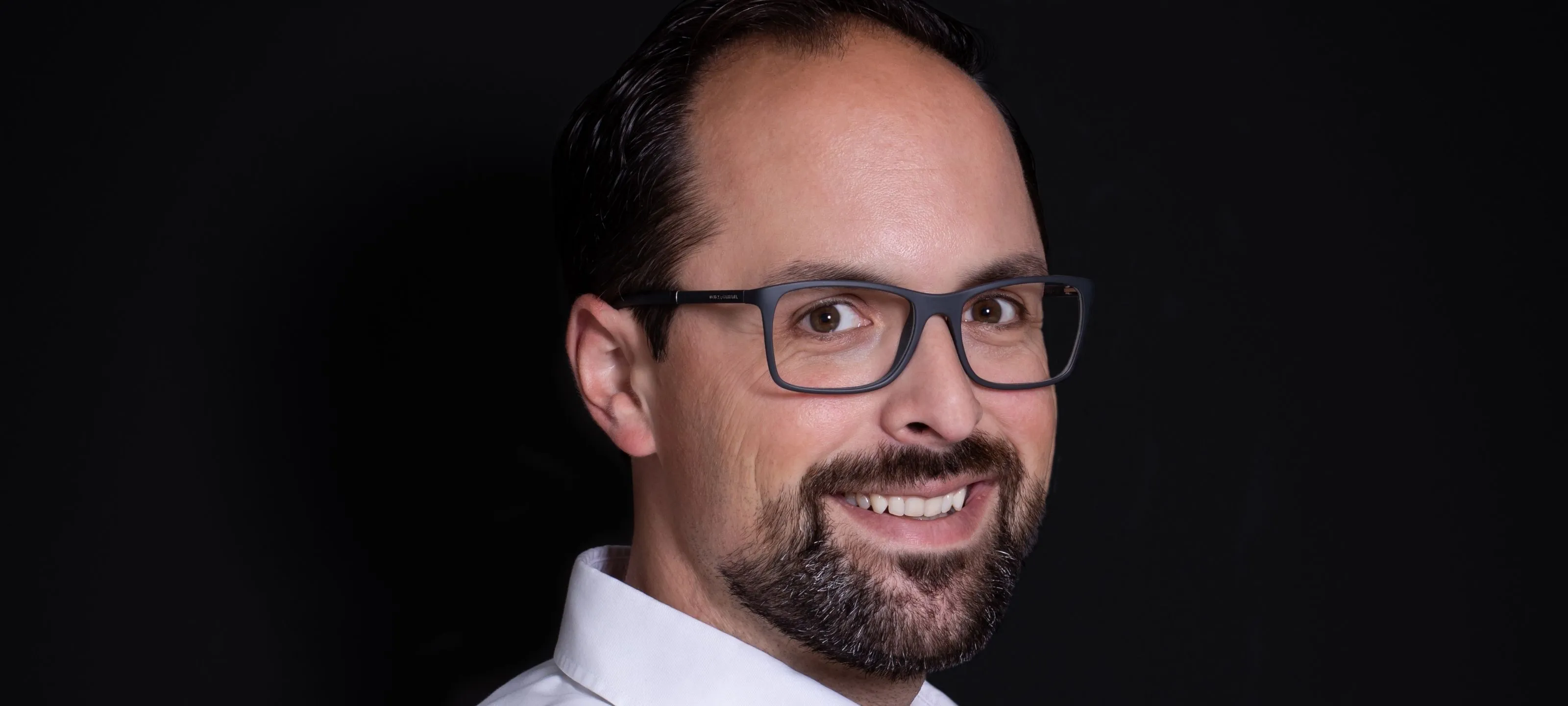
In Conversation with Tobias Berghäuser, KPM Hotel & Residences Berlin

How can digital marketing inspire discerning guests? Tobias Berghäuser of KPM Hotel & Residences in Berlin talks about digitalization and direct bookings.
Tobias Berghäuser on KPM Hotel & Residences
<div class="article_quote"><div class="article_quote_contain"><div class="article_quote_quote">"I am a firm believer that professional, personalized service for a discerning clientele is the measure of all things."</div><div class="article_quote_name u-text-style-main">Tobias Berghäuser</div></div></div>
Tobias Berghäuser holds a degree in Business Administration from the Wiesbaden Business School and a degree in Hotel Management from the German Hotel Academy (DHA) in Cologne. He was hired as a consultant for KPM (Königliche Porzellan-Manufaktur) Hotel & Residences Berlin, and has been its managing director since November 2018. In addition, Mr. Berghäuser works as a management consultant in the hotel and restaurant industry.
<h3 class="interview-question">What makes KPM Hotel & Residences such a unique and strong brand?</h3>
The uniqueness starts with the name. KPM Berlin is a luxury brand. It stands for a company that has been producing high-quality porcelain by hand in Berlin to the highest quality standards for more than 255 years. The Königliche Porzellan-Manufaktur Berlin has always strived to be a style-setter in its respective design era. We have transferred this claim to the hotel industry. We present our guests with a modern premium model in which the room product is in the foreground. Our rooms are private retreats, living spaces that stand out from other establishments because of the exceptional quality of their furnishings.
Despite its size, KPM Hotel & Residences defines itself as a boutique hotel. We have taken the trouble to create individual products, both in terms of room furnishings and floor plans. This individuality is our added value. There are two points of view: that of the company and that of the guest. Large hotel chains need to standardize in order to be able to grow within the given revenue expectations. If you look at it from the guest's point of view, I am convinced that professional, personalized service for a demanding audience is still the measure of all things.
<h3 class="interview-question">Please give us a brief insight into the long history of KPM. Why did a porcelain manufacturer decide to enter the hotel business?</h3>
It should be mentioned that the decision was not made at the level of the manufactory, but at the level of the owner. Jörg Woltmann, a Berlin entrepreneur, took over KPM Berlin in 2006 as the sole shareholder and was able to save the company from bankruptcy. He is using his private fortune to preserve, expand and reposition KPM Berlin as a cultural asset and a Berlin institution steeped in tradition. Jörg Woltmann also has extensive experience in the hotel business. In addition to the KPM Hotel & Residences, he owns four other hotels. His ambition to further develop the KPM brand and make it a tangible experience has been fundamental in profiling KPM Hotel & Residences as a design hotel in the premium segment.
<h3 class="interview-question">How do you transfer a brand image like KPM to a hotel? What should you be aware of?</h3>
The implementation of such a project has to be done carefully. We took the necessary time to develop the concept and create an independent identity for the hotel that fits the KPM Berlin brand. The goal was to extend and support the brand while still being able to operate independently and autonomously in the market. We wanted to create a synergy that would benefit both KPM Berlin and our hotel - and we succeeded.
<div class="article_quote"><div class="article_quote_contain"><div class="article_quote_quote">"The KPM Hotel & Residences serves as a first point of contact for customers who have never been exposed to KPM Berlin before. "</div><div class="article_quote_name u-text-style-main">Tobias Berghäuser</div></div></div>
In this way, the brand receives attention through the hotel. At the same time, we have the opportunity to tell an authentic story and offer guests experiences that go beyond a simple overnight stay. This could include factory tours, a special shopping experience or workshops. Ultimately, every guest is a potential client for KPM Berlin. For us, however, the hotel is the focus - the precious porcelain and KPM Berlin are the crowning glory of our commitment as hosts.
<h3 class="interview-question">You were originally brought in as a consultant. You stayed on as managing director. How did that happen?</h3>
My career has been characterized by alternating between operational and consulting activities. The outstanding project that I have been involved in for the last four years started with me being brought in as a consultant to discuss how the proposed hotel could be economically presented. This was followed by conceptual consulting. Over the years, the cooperation between the parties involved became closer and closer, and at some point I put so much of my heart and soul into the entire planning and conceptualization that the implementation was the logical consequence. This is a wonderful challenge for me.
<h3 class="interview-question">What does "digitalization" mean to you in the hotel industry? What opportunities and risks do you see?</h3>
The hotel industry is and always will be a "people business". From a certain point of digitalization, there is a risk that people and the exchange between guests and employees will increasingly fade into the background. As a result, hotels will become more impersonal and a bit of soul and passion will be lost. For me, this is the main danger of digitalization in the hotel industry, especially in a segment that appeals to premium customers. In the budget segment, where there is not such a high expectation of exchange between the guest and the hotel, you can certainly automate and digitize some processes.
Ultimately, one of the benefits of digital applications is to enhance the guest experience. There are many ways to improve the perceived quality of service from the guest's perspective. One example is the digital concierge, a tablet in the room that allows guests to get information in their local language, access multiple newspapers, book tickets quickly and easily, or check the availability of e-bikes for rent.
<div class="article_quote"><div class="article_quote_contain"><div class="article_quote_quote">"Streamlining processes through digitalization means that people have more time. But this time has to be used in a meaningful way. This requires good concepts in the hotel industry to improve individual communication with the guest."</div><div class="article_quote_name u-text-style-main">Tobias Berghäuser</div></div></div>
<h3 class="interview-question">Which digital distribution channels and advertising platforms do you primarily use and how intensively?</h3>
As an individual hotel, we are dependent on working with OTAs (online travel agencies); at the same time, of course, we strive to achieve the highest possible share of direct bookings. For the initial contact, OTAs are helpful multipliers, but then it is up to us to convince the guest and convert them into a returning direct booker. This conversion process requires an individual approach that builds a personal relationship between the guest and the hotel.
<h3 class="interview-question">What projects come to mind when you think of new, outstanding hotel concepts around the world?</h3>
For me, there are hotel concepts all over the world that work well and manage to exceed guest expectations in the right place. For me, that's what makes a great project.
In Berlin, we have a young, dynamic market with many new concepts. You have to differentiate whether you focus on the concept or the services behind it. In terms of service quality, the Asian countries are pioneers. When it comes to the concept, here in Berlin we are at the forefront. In Amsterdam or in the Scandinavian countries, there are also many individual and contemporary hotels with interesting concepts.
<h3 class="interview-question">Is there a personality you always wanted to meet? Why and what would be your central question to that person?</h3>
Off the top of my head, I can think of Elon Musk. He is an intrepid entrepreneur who defies convention and long-established standards to create new ones. Tesla is a real game changer, just like the iPhone was back in the day. These are products that, despite all the criticism, are of the highest quality. Other projects, such as SpaceX or the Hyperloop, also show that Elon Musk is completely rethinking things and breaking away from familiar patterns. Of course, these projects are not without controversy, but that's another story. My question to him would be where he gets the inspiration for such grand visions.
.webp)
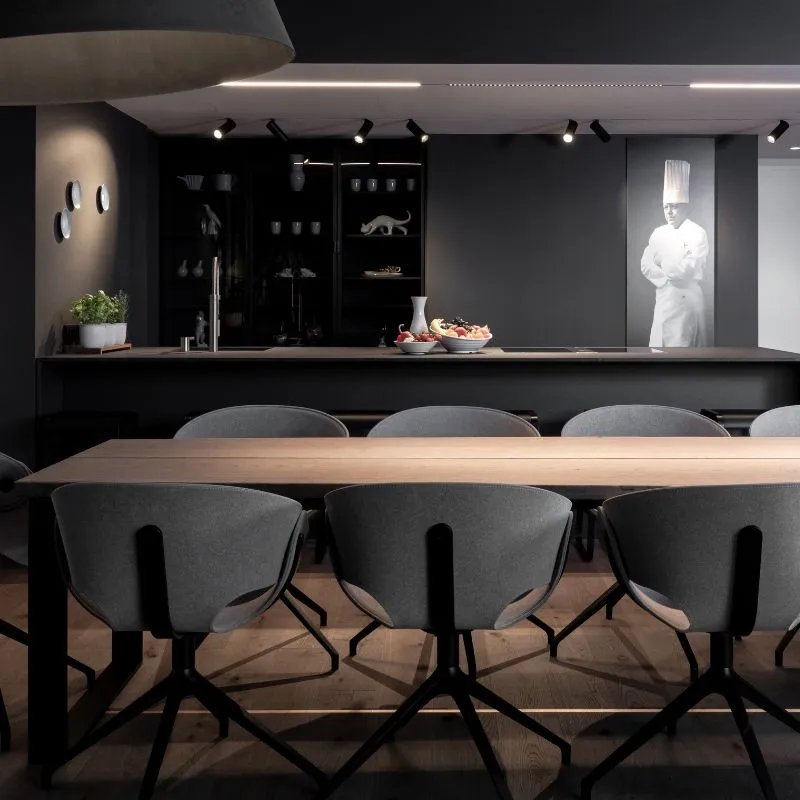
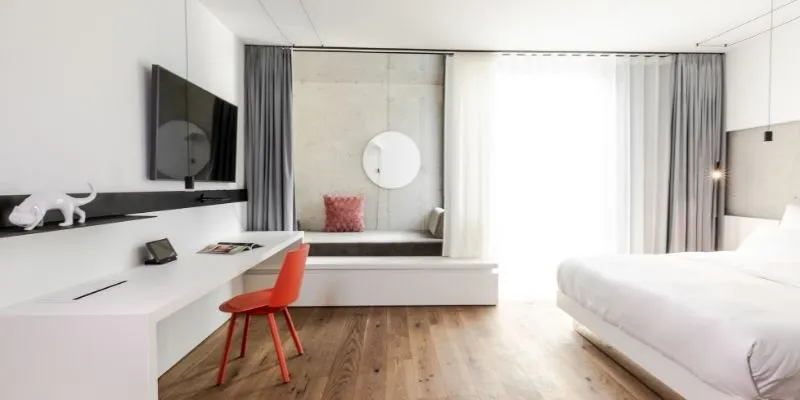
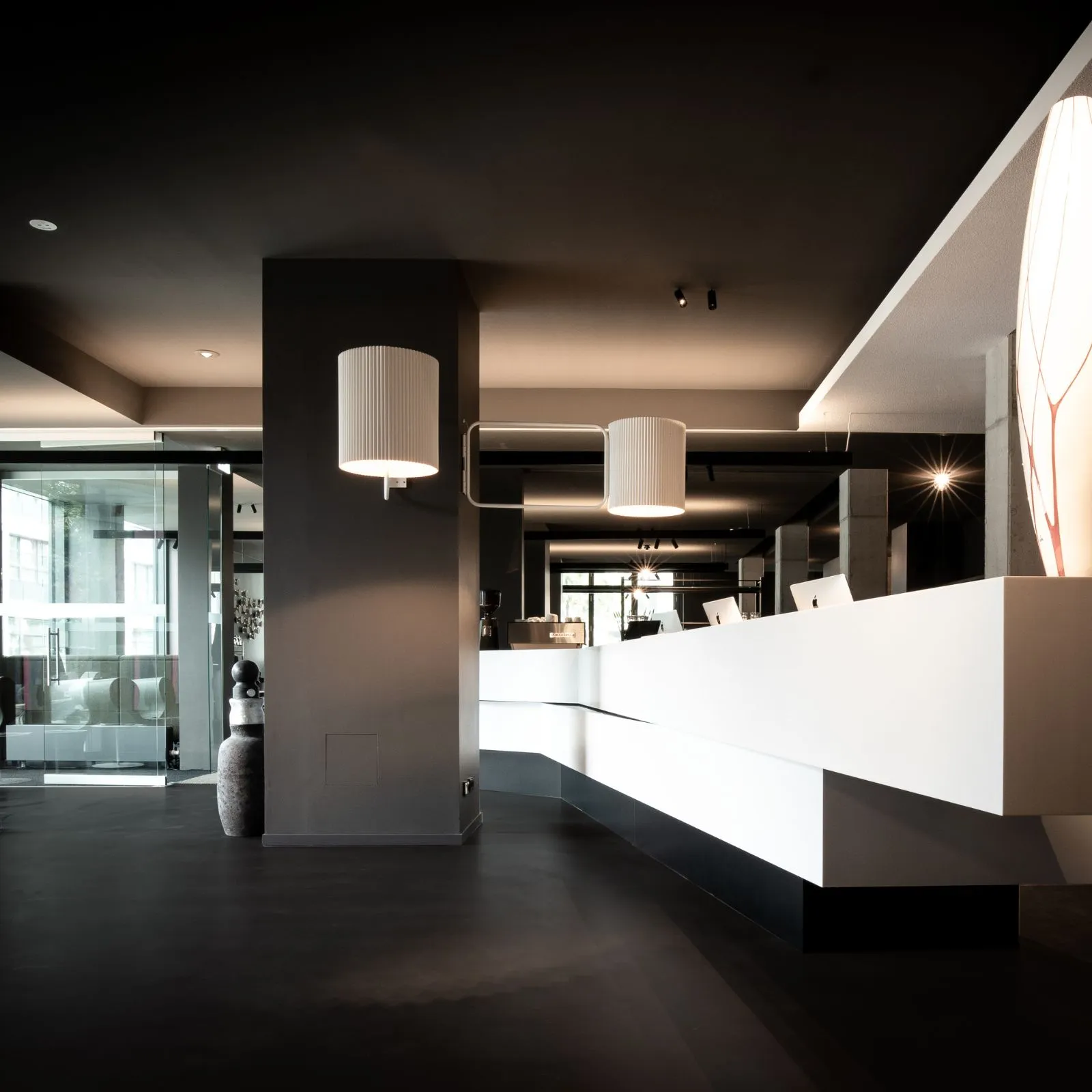
Digitalization & Direct Bookings at KPM Hotel Berlin
<div class="article_quote"><div class="article_quote_contain"><div class="article_quote_quote">"Ultimately, one of the key benefits of digital solutions is the enhancement of the guest experience."</div><div class="article_quote_name u-text-style-main">Tobias Berghäuser</div></div></div>
<h3 class="interview-question">What does “digitalization” in the hotel industry mean to you? What opportunities and risks do you see in this regard?</h3>
The hotel industry is and will remain a “people business.” At a certain point, there’s a risk that digitalization pushes human interaction between guest and staff further into the background. When that happens, hotels can become less personal, losing a part of their soul and passion. In my view, that’s the greatest risk of digitalization in hospitality—especially in segments that cater to premium guests. In budget hospitality, where the expectation for personal interaction is lower, it’s certainly possible to automate and digitalize more processes.
Ultimately, one of the key benefits of digital applications is the enhancement of the guest experience. There are many ways to improve the perceived quality of service from the guest’s point of view—for example, a digital concierge in the form of a tablet in the room. Through it, guests can access information in their native language, read various newspapers, book tickets easily and quickly, or check the availability of rentable e-bikes.
Streamlined processes through digitalization free up time. However, that time should then be used meaningfully—in an analog way. This requires strong concepts in the hotel industry that enhance individual communication with the guest.
<div class="article_quote"><div class="article_quote_contain"><div class="article_quote_quote">"OTAs are helpful multipliers for the initial contact, but it's then our responsibility to convince the guest and turn them into a returning direct booker."</div><div class="article_quote_name u-text-style-main">Tobias Berghäuser</div></div></div>
<h3 class="interview-question">Which digital distribution channels and advertising platforms do you primarily use, and to what extent?</h3>
As an independent hotel, we rely on working with OTAs (Online Travel Agencies), but at the same time, we naturally aim to generate as many direct bookings as possible. OTAs serve as helpful multipliers for the initial contact, but it's then our responsibility to convince the guest and turn them into a returning direct booker. This transformation requires personalized communication that builds a meaningful relationship between the guest and the hotel.
<h3 class="interview-question">The KPM Hotel has been in soft opening since September 2019. The official grand opening, originally planned for mid-June 2020, had to be postponed due to the COVID-19 pandemic. Did the hotel have to close? And what are the plans for the official opening?</h3>
The KPM Hotel & Residences has not been closed for a single day since the outbreak of the pandemic. In line with government regulations, operations were initially scaled down to a minimum and then gradually ramped up again.
Our grand opening, originally scheduled for June, is now planned for this fall, of course with all current hygiene regulations in place. Preparations are underway, and we are very pleased to see a steady increase in bookings. Before the lockdown, we had only been open for a few months, but our guests haven’t forgotten us. We’re very grateful for that and see it as a strong confirmation of our concept.
<div class="article_quote"><div class="article_quote_contain"><div class="article_quote_quote">"Now more than ever, city hotels are challenged to offer packages tailored to local guests and to position themselves more strongly as venues for family gatherings, for example."</div><div class="article_quote_name u-text-style-main">Tobias Berghäuser</div></div></div>
<h3 class="interview-question">City hotels often benefit from international travelers and, particularly in trade fair destinations like Berlin, from large-scale events. Does the business model of city hotels need to change?</h3>
The timing and scale of future trade fairs or large events remain uncertain—it all depends on how quickly a COVID-19 vaccine and effective treatments become widely available. As a result, city hotels are being forced to rethink guest communication strategies, and many long-postponed modernization plans are now proving to be costly omissions.
Today’s travelers are more demanding than ever. This gives the KPM Hotel & Residences, as a newly opened, modern property, a clear advantage. The urban atmosphere, excellent transport connections, the unique room design, above-average amenities, and—last but not least—the strength of the KPM Berlin brand all come together to form a highly attractive offer. And we’re already seeing the effects.
Our program of in-house cultural and musical events in a more intimate setting is also enjoying great popularity. Now more than ever, city hotels are called upon to offer tailored experiences for local guests and to position themselves as destinations for family gatherings or small-scale events.
.webp)
Future Strategies for Urban Hospitality
<h3 class="interview-question">Will travel behavior change permanently in the post-COVID-19 era?</h3>
There is no doubt that travel behavior will change. The pandemic has been such a profound and dramatic experience for people around the world that it will have a lasting impact on tourism. The global recession is already affecting consumer behavior. Domestic leisure travel bookings are expected to stabilize slowly but steadily. However, the strong trend toward remote work will lead to a noticeable decline in business travelers, and it is already foreseeable that international tourism will recover only very gradually. The general hesitation toward air travel is a global phenomenon. Nevertheless, I’m optimistic that, in the long term, the hospitality industry could emerge even stronger from the crisis. The reduction of overcapacity and a healthy consolidation of the market could ultimately result in higher overall quality.
<div class="article_quote"><div class="article_quote_contain"><div class="article_quote_quote">" Nevertheless, I remain optimistic that the hospitality industry may emerge even stronger from the crisis in the long run. The reduction of overcapacity and a healthy consolidation of the market could, in the best-case scenario, lead to an overall increase in quality."</div><div class="article_quote_name u-text-style-main">Tobias Berghäuser</div></div></div>
<h3 class="interview-question">When we talk about new and outstanding hotel concepts around the world, which projects come to mind first?</h3>
For me, there are successful hotel concepts all over the world that manage to exceed guest expectations in the right place at the right time. That’s what defines an outstanding project in my opinion.
In Berlin, we have a young, dynamic market with numerous new concepts. It's important to distinguish between the concept itself and the services behind it. In terms of service and hospitality quality, Asian countries are definitely ahead. When it comes purely to the concept, Berlin is right at the forefront. Amsterdam and the Scandinavian countries also offer many unique and contemporary hotels with exciting concepts.
<h3 class="interview-question">Is there a person you’ve always wanted to meet? Why, and what would be your key question to them?</h3>
GThe first person that comes to mind is Elon Musk. He’s a fearless entrepreneur who breaks away from conventions and established norms to create new standards. Tesla is a true game changer—much like the iPhone was in its time. These are products built on the highest level of quality, despite all the criticism. Projects like SpaceX or the Hyperloop show that Elon Musk thinks entirely differently, unbound by existing patterns. Of course, some of these projects are controversial—but that’s another topic. My question to him would be: Where do you find the inspiration for such far-reaching visions?
Update May 2021: The KPM Hotel & Residences is one of the leading design hotels in Europe and has been nominated as "Europe's Leading Design Hotel 2021" in the World Travel Awards.







.jpg)

.jpg)
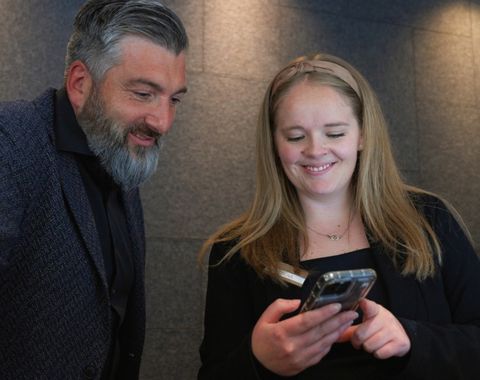
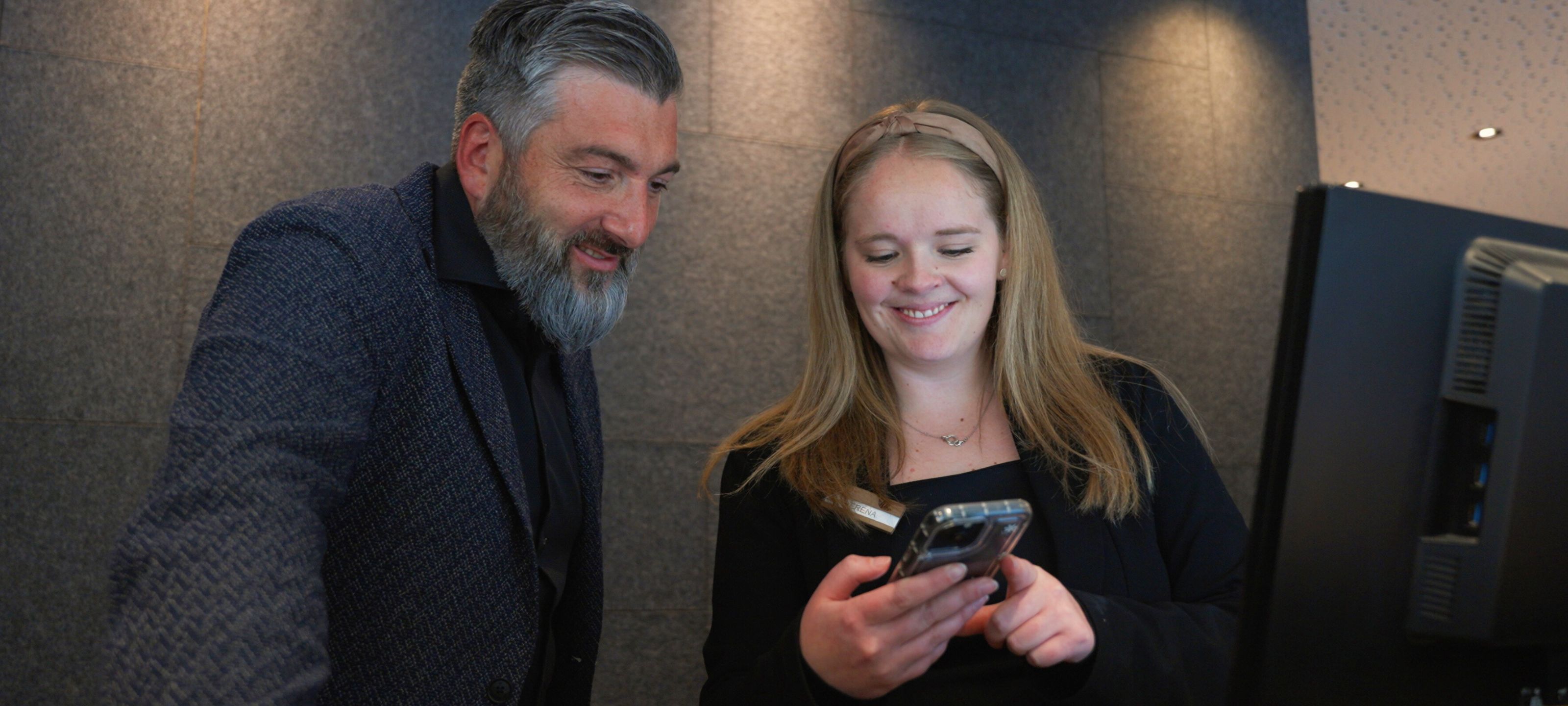
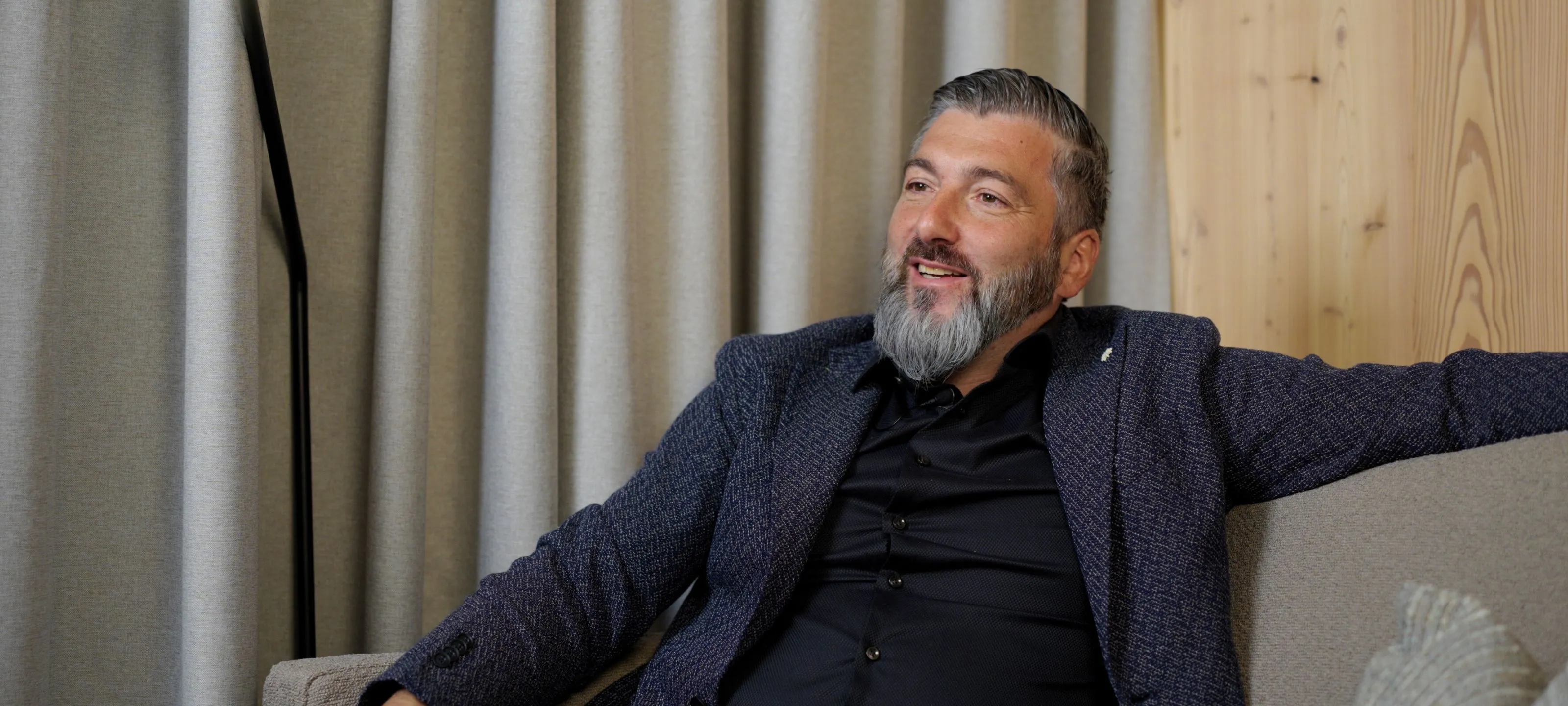
.webp)
